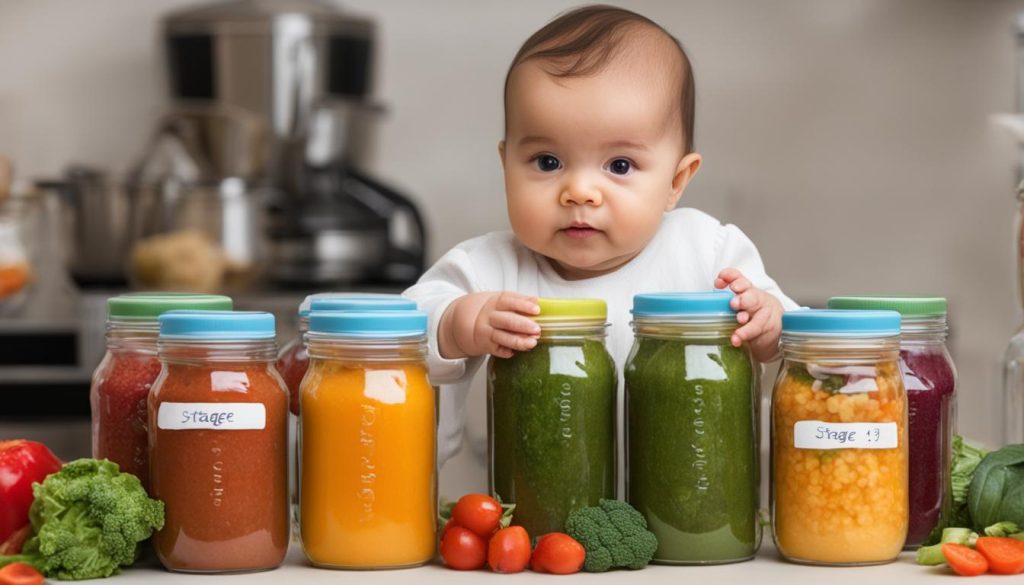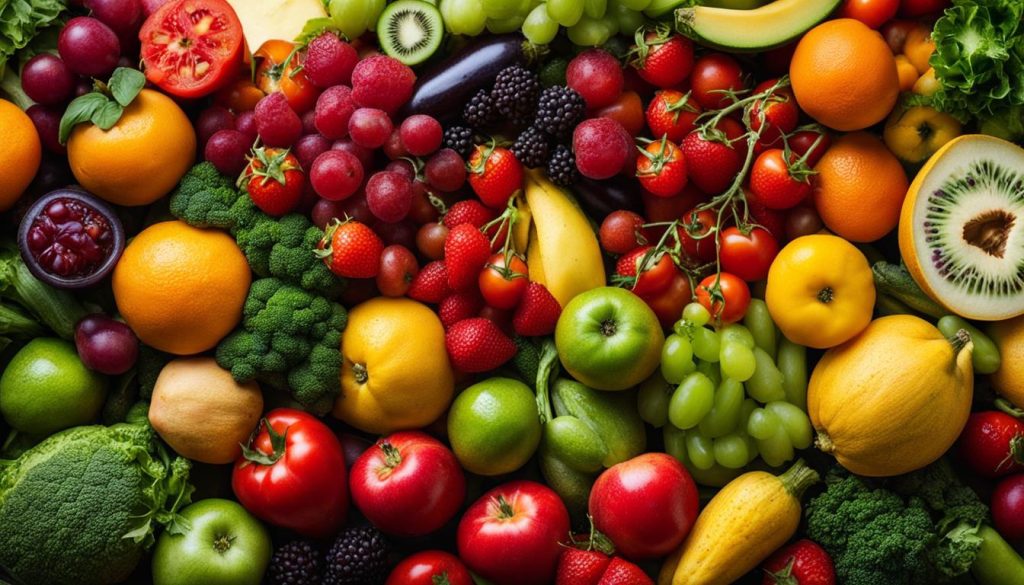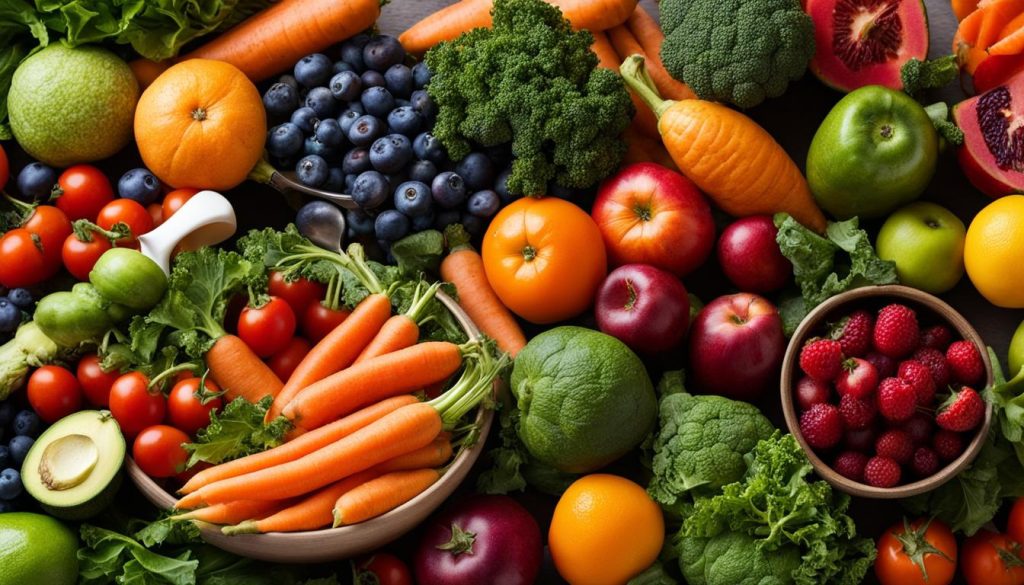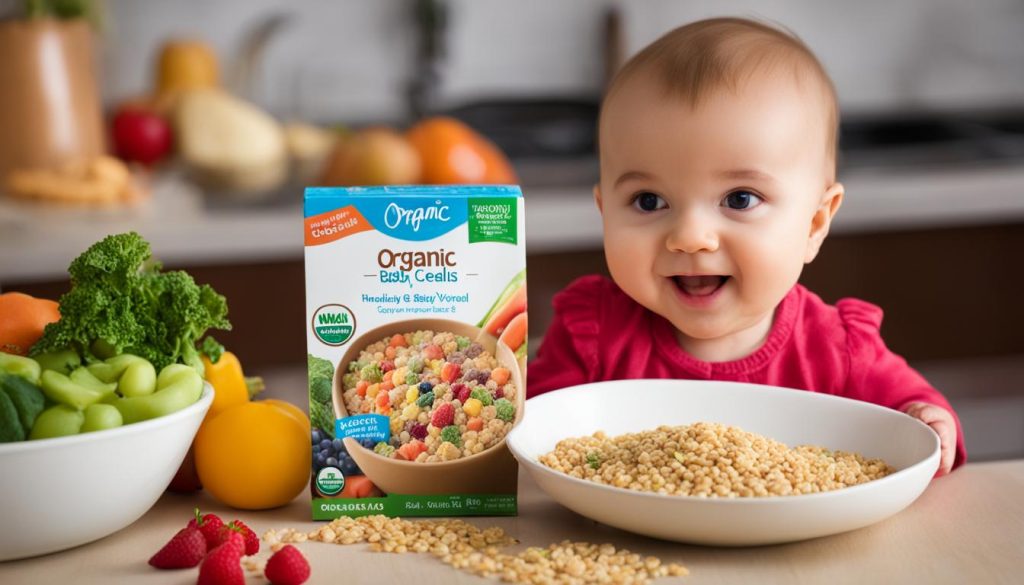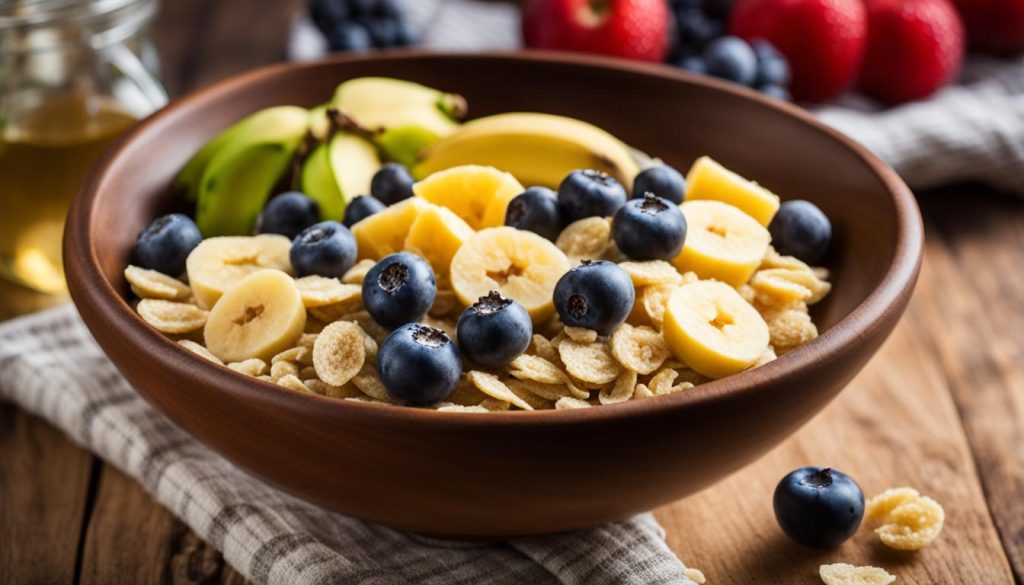Introducing solid foods to your baby can be an exciting but sometimes confusing journey. Understanding the different stages of baby food and knowing when and how to introduce them is crucial for your child’s health and development.
In this comprehensive guide, I will explore the benefits and considerations of organic baby food, the differences between organic and conventional baby foods, and provide tips for parents as they navigate the various stages of introducing solids to their baby.
When it comes to feeding your little one, there are important factors to consider such as the nutritional content, the absence of pesticides in the ingredients, and the cost-effectiveness of homemade options. Join me as I delve into the world of baby food and help you make informed decisions for your baby’s well-being.
Understanding Baby Food Stages and Age Recommendations
Baby food stages are an important consideration for parents as they introduce solid foods to their little ones. While there’s no standardized classification, many popular baby food brands categorize their products into stages based on age ranges. These stages are designed to align with your baby’s developmental needs and provide age-appropriate textures and flavors.
Generally, there are four stages of baby food:
- Stage 1 (around 4 to 6 months): At this stage, pureed single-ingredient foods such as fruits and vegetables are introduced. These smooth textures are easy for babies to swallow and digest as they acclimate to solid foods.
- Stage 2 (around 6 to 8 months): As your baby progresses, stage 2 introduces a wider variety of flavors and combinations. Thicker purees with a slightly chunkier texture help develop their chewing skills.
- Stage 3 (around 8 to 10 months): By this stage, your baby is ready for more complex textures and introduced to mashed or soft foods. Stage 3 often includes small chunks of fruits, vegetables, and proteins to encourage self-feeding and improve their motor skills.
- Stage 4 (around 10 to 12 months): As your baby approaches their first birthday, stage 4 focuses on finely chopped or mashed foods that resemble adult meals. This stage prepares them for transitioning to a regular diet gradually.
It’s important to note that every baby is different, and you should consult with your pediatrician before starting or transitioning between stages. They can provide personalized recommendations based on your baby’s unique needs and development.
Baby food stages serve as a guide for parents, ensuring that they introduce appropriate textures and flavors to support their baby’s growth and development. By understanding each stage and following the age recommendations, parents can provide a well-rounded and nutritious diet for their little ones.
The Best Baby Food Brands
When it comes to choosing the best baby food brands, there are several factors to consider. Look for brands that prioritize high-quality ingredients, preferably organic and free from artificial additives. Popular and reputable baby food brands that offer a variety of purees include:
- Happy Family Organics
- Beech-Nut
- Plum Organics
- Gerber
- Ella’s Kitchen
These brands have a wide range of flavors and textures to meet your baby’s preferences as they explore different tastes. Remember to read labels, check for any allergens, and choose products that align with your baby’s needs and dietary preferences.
| Brand | Organic Options |
|---|---|
| Happy Family Organics | Yes |
| Beech-Nut | Yes |
| Plum Organics | Yes |
| Gerber | No |
| Ella’s Kitchen | Yes |
Choosing the best baby food brands ensures that your little one receives nutritious and flavorful meals during their journey of exploring solid foods.
The Benefits of Organic Baby Food
When it comes to feeding your baby, choosing organic baby food can provide numerous advantages for their overall health and development. Organic baby food is made from ingredients that are grown without the use of synthetic pesticides, fertilizers, or genetically modified organisms (GMOs). This means that your little one will be consuming food that is free from harmful chemicals and additives, promoting their well-being.
One of the key benefits of organic baby food is its superior nutritional content. Organic fruits, vegetables, and grains are often richer in essential vitamins, minerals, and antioxidants compared to their conventionally grown counterparts. This means that by opting for organic options, you are providing your baby with a nutrient-dense diet that supports their growth and immune system.
Additionally, choosing organic baby food helps to reduce your baby’s exposure to pesticides. Babies and young children are more vulnerable to the potential health risks associated with pesticide residue. By feeding them organic food, you can minimize their exposure to these harmful chemicals, which have been linked to developmental issues and other health concerns.
In summary, opting for organic baby food offers significant benefits for your child’s health and well-being. From the absence of pesticides to the enhanced nutritional content, organic options provide a safe and nutritious choice for your little one’s early food experiences.
The Benefits of Organic Baby Food
| Benefits | Explanation |
|---|---|
| Superior Nutritional Content | Organic baby food is often richer in essential vitamins, minerals, and antioxidants compared to conventional options. |
| Absence of Pesticides | Choosing organic reduces your baby’s exposure to harmful chemicals found in pesticide residue. |
| Promotes Health and Development | Organic options provide a nutrient-dense diet that supports your baby’s growth and immune system. |
Choosing organic baby food offers significant benefits for your baby’s health and development. By providing them with food that is free from pesticides and rich in essential nutrients, you are laying the foundation for a healthy future.
Homemade Baby Food and Tips for Parents
Preparing homemade baby food can be a rewarding and healthy option for parents. By making your own baby food, you have full control over the ingredients, ensuring that your little one receives the freshest and most nutritious meals possible. Here are some tips to help you get started:
1. Choose the Right Equipment
Investing in a good quality blender or food processor is essential for making homemade baby food. These appliances will help you achieve the right consistency for your baby’s meals, whether you’re pureeing fruits and vegetables or mashing cooked meats.
Additionally, having BPA-free storage containers or ice cube trays will make it easier to store and portion out your homemade baby food. Freezing individual portions allows you to thaw only what you need, reducing waste and ensuring freshness.
2. Select Fresh and Nutrient-Rich Ingredients
When preparing homemade baby food, opt for organic fruits, vegetables, and meats whenever possible. Organic produce is free from harmful pesticides and contains higher levels of essential nutrients, which can benefit your baby’s overall health and development.
Remember to wash and peel fruits and vegetables thoroughly before cooking or pureeing them. Remove any seeds, pits, or tough skins that could pose a choking hazard.
3. Introduce New Foods Gradually
As you transition your baby to solid foods, it’s important to introduce new foods gradually and one at a time. This approach allows you to identify any potential allergies or sensitivities and to monitor how your baby reacts to different foods.
Start with single-ingredient purees, such as mashed bananas or steamed carrots, and gradually incorporate more complex flavors and textures. Use a trusted baby food recipes book or online resources to ensure you’re providing a balanced and varied diet.
By making homemade baby food, you can nourish your little one with wholesome meals tailored to their needs. Experiment with different flavors and textures, and enjoy this special bonding experience as you introduce your baby to the wonderful world of food.
| Advantages of Homemade Baby Food | Store-Bought Baby Food |
|---|---|
| Control over ingredients and quality | May contain additives and preservatives |
| Cost-effective in the long run | Can be more expensive |
| Fresher and more nutritious | May lose nutrients during processing |
| Ability to introduce a wide variety of flavors | Limited flavor options |
| Reduced exposure to pesticides and other toxins | Potential exposure to pesticides |
Choosing the Best Baby Food Brands
When it comes to feeding our little ones, we want to ensure they’re getting the best nutrition possible. That’s why choosing the right baby food brand is so important. With a multitude of options available, here are some of the best baby food brands to consider:
1. Earth’s Best
Earth’s Best is a trusted brand known for its wide range of organic baby food purees. Their products are made with high-quality, non-GMO ingredients, providing a variety of flavors and textures suitable for different stages of your baby’s development.
2. Beech-Nut
Beech-Nut offers a wide selection of baby food purees made with real ingredients, including fruits, vegetables, and whole grains. Their products are free from artificial preservatives, colors, and flavors, ensuring that your baby is getting wholesome and nutritious meals.
3. Gerber
Gerber has been a household name in baby food for decades. With a range of options, from single-ingredient purees to more complex blends, Gerber offers a variety of flavors and textures to suit your baby’s taste buds. They also provide organic options for parents who prefer that their child’s food is free from synthetic pesticides.
When choosing the best baby food brand for your little one, it’s important to consider factors such as ingredient quality, variety, and nutritional content. By selecting a reputable brand that aligns with your values and provides wholesome options, you can feel confident that you’re giving your baby the best start to their solid food journey.
FAQ
What are the different stages of baby food?
Baby food stages are not standardized, but many popular brands categorize their products into stages based on age ranges.
What are the benefits of organic baby food?
Organic baby food offers several benefits for young children’s health and development, including the absence of pesticides and potentially higher nutritional content.
How can I make homemade baby food?
Making homemade baby food can be a cost-effective and healthy alternative. Some tips for preparing homemade baby food include pureeing fruits and vegetables and gradually transitioning your baby to solid foods.
How do I choose the best baby food brands?
When selecting baby food brands, it’s important to consider factors such as ingredient quality, variety of flavors, and nutritional content. Some popular and reputable baby food brands to consider are [brand names].

